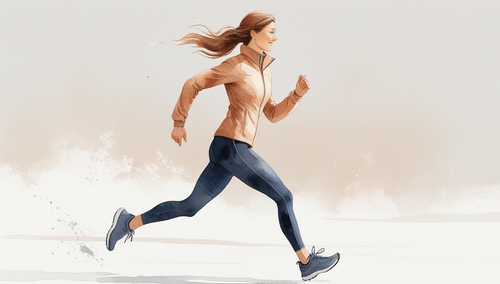How to Use Relative Clauses (Who, Which, That, Whose, Where, When)
Lesson Table of Contents
- Understanding Relative Clauses
- Step 1: When to Use "Who"
- Step 2: When to Use "Which"
- Step 3: When to Use "That"
- Step 4: When to Use "Whose"
- Step 5: When to Use "Where"
- Step 6: When to Use "When"
- Quick Test! Can You Fix These Mistakes?
- Answer Key
- Dialogue: At the Café
- Relative Clauses in Action
Click Here for Step-by-Step Rules, Stories and Exercises to Practice All English Tenses
Understanding Relative Clauses
What Are Relative Clauses?
A relative clause is a part of a sentence that gives more information about a noun. It starts with words like who, which, that, whose, where, and when.
Think of it as an extra detail to help describe something!
For example:
- The man who lives next door is very friendly.
(The relative clause "who lives next door" gives more information about "the man.")
What Is a Clause?
Before we go further, let's talk about what a clause is. A clause is a group of words that has a subject and a verb.
Examples of clauses:
- She runs every morning. (Subject = She, Verb = runs)
- I met a teacher who loves history. (Relative clause = who loves history. Subject = who, Verb = loves)


A relative clause is a special type of clause that cannot stand alone. It must be part of a larger sentence.
✅ I like the book that you recommended. (The relative clause "that you recommended" gives more details about "the book.")
Step 1: When to Use "Who"
Use who for people.
Examples:
✅ She is the teacher who helped me.
✅
The boy who won the race is my cousin.
❌ The book who is on the table is mine. (Incorrect – "who" is only for
people)
✅ The book that is on the table is mine. (Correct)
Step 2: When to Use "Which"
Use which for things (not people).
Examples:
✅ The car which is parked outside is
mine.
✅ I love the movie which we watched yesterday.
❌ The person which called me was my friend. (Incorrect – "which" is for
things, not people)
✅ The person who called me was my friend. (Correct)
Step 3: When to Use "That"
You can use that for both people and things (but "who" is more common for people).
Examples:
✅ The dog that barked last night belongs to my
neighbor.
✅ The girl that sits next to me is very nice.
❌ The city that I was born is beautiful. (Incorrect – "that" is not used
for places in this way)
✅ The city where I was born is beautiful.
(Correct)
Step 4: When to Use "Whose"
Use whose to show possession (who something belongs to).
Examples:
✅ She is the woman whose car was stolen.
(Her car was stolen)
✅ I met a boy whose father is a famous
singer. (His father is a famous singer)
❌ I met a boy who father is a famous singer. (Incorrect – "who" cannot
show possession)
✅ I met a boy whose father is a famous singer. (Correct)
Step 5: When to Use "Where"
Use where for places.
Examples:
✅ This is the house where I grew up.
✅
I know a café where they serve great coffee.
❌ This is the house which I grew up. (Incorrect – "which" is not for
places)
✅ This is the house where I grew up. (Correct)
Step 6: When to Use "When"
Use when for times.
Examples:
✅ I remember the day when we first met.
✅
1990 was the year when my brother was born.
❌ I remember the day which we first met. (Incorrect – "which" is not for
time)
✅ I remember the day when we first met. (Correct)
Quick Test! Can You Fix These Mistakes?
- ❌ The girl which is singing is my sister.
- ❌ I visited the city who has the best food.
- ❌ He is the man where helped me.
- ❌ This is the country when I was born.
- ❌ Do you know the man who car is blue?
- ❌ The dog who barked all night belongs to my neighbor.
- ❌ This is the restaurant which I met my friend.
- ❌ She is the person that bicycle was stolen.
- ❌ I need a day which I can rest.
- ❌ The movie who we watched yesterday was amazing.

Answer Key
- ✅ The girl who is singing is my sister.
- ✅ I visited the city which has the best food.
- ✅ He is the man who helped me.
- ✅ This is the country where I was born.
- ✅ Do you know the man whose car is blue?
- ✅ The dog that barked all night belongs to my neighbor.
- ✅ This is the restaurant where I met my friend.
- ✅ She is the person whose bicycle was stolen.
- ✅ I need a day when I can rest.
- ✅ The movie that we watched yesterday was amazing.
Dialogue: At the Café
(A conversation between two friends, Lisa and Jake, at a café.)

Lisa: This café is amazing! I love the coffee here.
Jake: Yeah, it's my favorite spot. The barista who works here makes the best cappuccino.
Lisa: Really? Which one?
Jake: The guy who has curly hair and wears glasses. He always remembers my order.
Lisa: That’s impressive. I need to find a café where they actually get my name right.
Jake: Oh, yeah! Last time, they wrote “Liza” on your cup instead of “Lisa.”
Lisa: Exactly! By the way, what’s the name of the cake that you ordered? It looks delicious.
Jake: It’s called “chocolate dream.” It’s the one which has layers of chocolate and caramel.
Lisa: Wow. I think I’ll get that too. But I should probably avoid desserts whose ingredients include too much sugar.
Jake: That’s a good idea. There’s a fruit salad that they serve here. It’s the one which comes with honey and nuts.
Lisa: That sounds perfect! Oh, I almost forgot—did you get a call from Mark?
Jake: Yeah! He invited us to his housewarming party. It’s on Saturday, which is perfect because I’m free that day.
Lisa: Nice! I love his new apartment. The living room, where he has that huge bookshelf, is my favorite spot.
Jake: Yeah, me too! By the way, do you know the girl whose car was parked in front of my house yesterday?
Lisa: Oh, that must be Sarah! She just moved into your neighborhood.
Jake: Oh, cool! I should introduce myself next time.
Lisa: You should! Now, let’s order before the line gets too long.
Relative Clauses in Action
Here’s how relative clauses helped in this conversation:
- who → The barista who works here makes the best cappuccino. (Describes a person)
- which → The one which has layers of chocolate and caramel. (Describes a thing)
- where → I need to find a café where they actually get my name right. (Describes a place)
- whose → I should probably avoid desserts whose ingredients include too much sugar. (Shows possession)
- when → It’s on Saturday, which is perfect because I’m free that day. (Refers to a time)
Get Updates, Special Offers, and English Resources
Download your FREE GIFT (the first two chapters of
English Short Stories Book and Workbook)
as soon as you join!

By submitting your email, you consent to receiving updates and newsletters from us and to the sharing of your personal data with third parties for the purposes of sending you communications. We will not spam you. You can unsubscribe at any time. For more information, please see our privacy policy.


